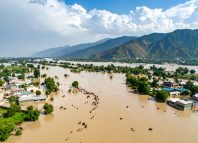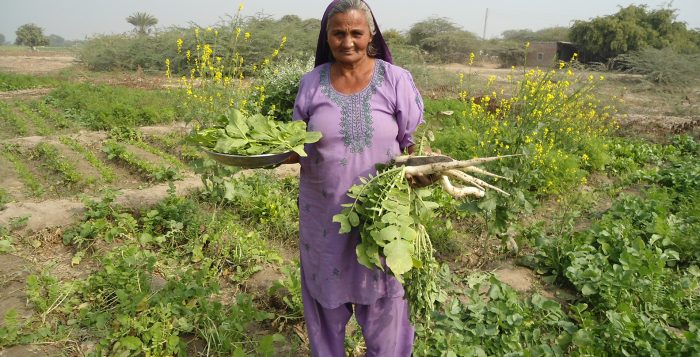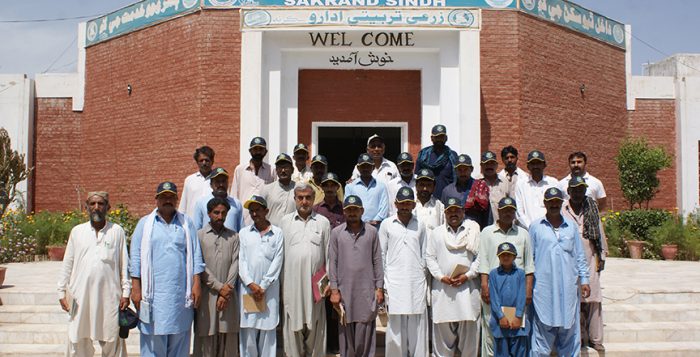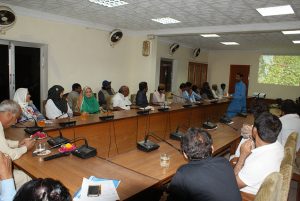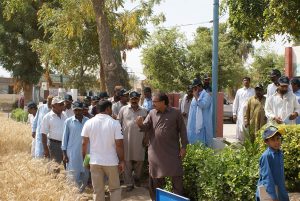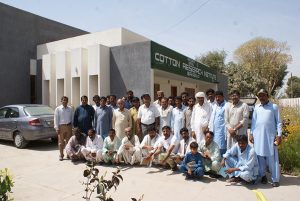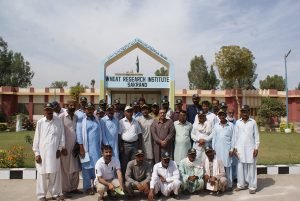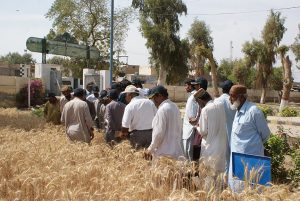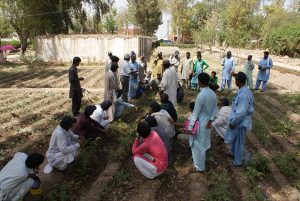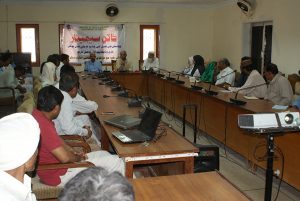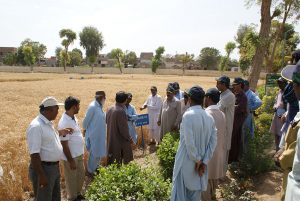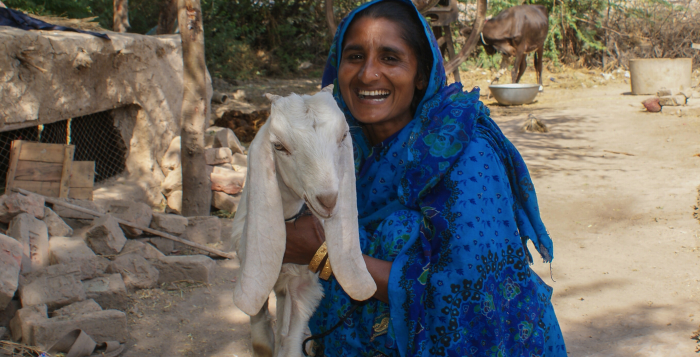Kitchen gardening activities conducted under the Sustainable Farming project in Badin aim to improve food security and household nutrition for disaster affected communities. Mirzadi, wife of Photo Khan and mother of eight children, belonging to Abdul Karim Leghari village in Badin, is one of the most active participants of the kitchen gardening trainings in Badin.
Six of Mirzadi’s children are married while she lives with two of her unmarried sons, who work for daily wages as labourers and sharecroppers in the area, supporting their mother and their very old and unwell father. The family does not own any land and relies solely on the income of the two young boys.
Mirzadi had no experience or expertise of growing vegetables before the kitchen gardening training. Earlier, she purchased vegetables for cooking from the local markets. This was expensive for her as she had to travel a distance to reach the markets and then buy the vegetables at whatever rates were offered. Considering the menial income of her sons, this was difficult to afford very often.
At the kitchen gardening trainings, Mirzadi learnt basic gardening skills and the knowledge to grow her own vegetables in her own little garden. Mirzadi found the “nutrition session” most interesting as it highlighted the importance of providing her family with nutritious food by consuming fresh and chemical free vegetables.
Upon the completion of the training, Mirzadi prepared a patch of land near her house to sow the seeds she received after the training. Soon after the seeds cultivated, producing fresh nutritious vegetables, Mirzadi observed a substantial decrease in her household, especially kitchen, expenses. This saving allowed her to keep the money for other domestic matters and healthcare needs. Mirzadi is successfully growing spinach, carrots, radish, garlic, coriander and tomatoes in her garden.
Mirzadi happily expressed.“My family is regularly consuming nutritious food including fresh and green vegetables from my kitchen garden,”
“Kitchen Garden has proven to be very useful for our family as it has ensured a greater degree of self-sufficiency. Though my grandsons and granddaughters are living separately, I send them freshly grown vegetables from my garden to ensure their healthy diet as well.”

